Any time you have a website you want to grow, content marketing is going to be one of your best options. There are plenty of ways to get short-term or temporary growth, but only dedicated effort to SEO and content marketing can get you long-term, ongoing growth.
But, in order to properly implement content marketing, you need good writers on your team. Now, the internet is full of writers you can hire, but it's not as simple as putting out a call and taking the first people to apply. Hiring good blog writers is a whole process. Luckily, I'm here to help you through it with a step-by-step guide and some nice resources along the way.
The first thing you're going to want to do is determine your needs. Different businesses will have different needs, depending on the competition in the niche, the existing content you have, how new you are, how much of a budget you have, and more. There's no one-size-fits-all solution. Here are a few questions to help you define the kinds of writers you'll want to hire.
This page is focused on blog writing. If you want someone to write website copy, press releases, technical writing, white papers, data reports, PPC ad copy, social media posts, or other kinds of non-blog content, you may want to look elsewhere for advice. I'll have pages to cover some of those (and already have blog posts for others) in the coming weeks, so stay tuned. Feel free to drop me a line if you have a request I haven't covered, as well.

The core of all content marketing is a blog. Blog posts and articles are a particular kind of writing, even if many writers consider it a kind of "generic" writing. It's usually long-form, somewhere between 1,500 words and 3,000 words on average. Anything shorter often (though not always) lacks the content to rank in Google search results. Anything longer either runs the risk of being too generic or unfocused or would be better served as an eBook, with the content split across several more focused posts. This is all part of blog strategy.
This determines the kinds of writers you'll work with. If you want to buy a bunch of posts in a short time frame and post them slowly over the course of a year, you're free to do that. In that case, you'll generally need to hire a number of writers for short-term contracts. This isn't always the ideal way to handle content marketing, though. Different writers will have different voices, and if they're working concurrently, they won't be able to match currently-published content because that content is also still being written.
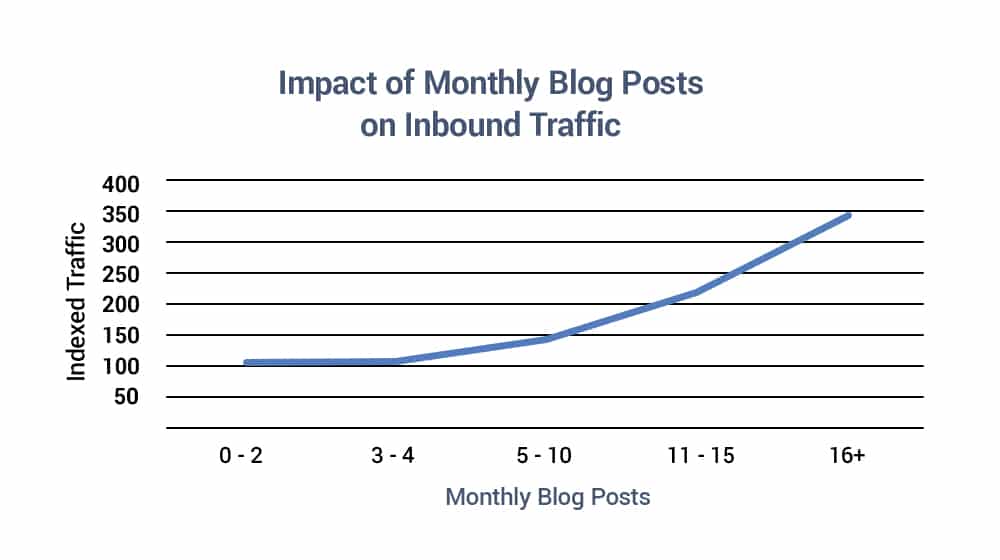
A regular schedule is good, but you'll want to define how frequent that schedule is. Many businesses do fine with one blog post per week. Others prefer 2-3 per week. Businesses heavily investing in content may do as many as one post per day, though this runs the risk of running out of topic ideas very quickly and will likely need numerous blog writers to keep up.
This is a major decision you'll need to make. Do you want to hire a writer as an employee? This involves a real employment contract, compliance with labor laws, and often various benefits beyond simple money. It can be more expensive than hiring a freelancer, but you'll end up with a longer, more stable relationship with a writer, in general.
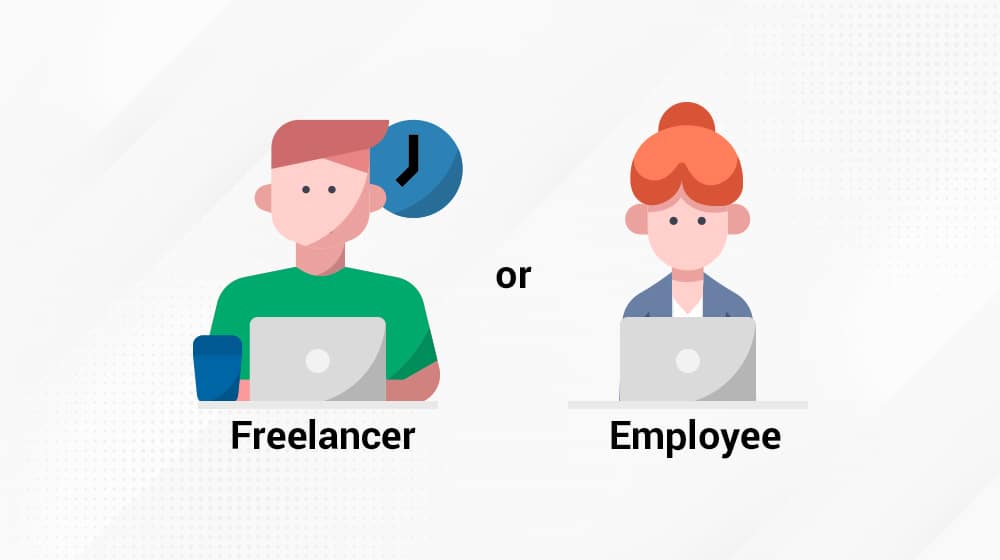
Conversely, hiring a freelancer gets you more flexibility, less expense, and more freedom. Also, there are many excellent freelance writers who would balk at a traditional employment contract since they don't want to be tied down. Both options are valid, of course, but the way to find the writers to hire will be different.
A ghostwriter writes for money, selling the rights to their work in exchange for being able to wash their hands of it when it's done. Their name isn't on the finished piece. Hiring a ghostwriter allows you to present content as if it's your own, building your own brand reputation, thought leadership, and authority.
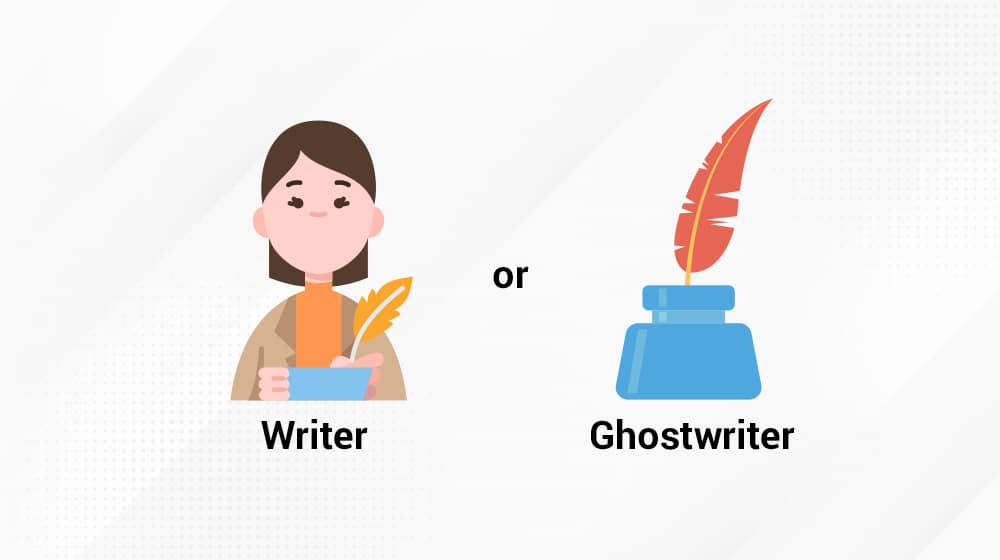
A non-ghost writer typically attaches their name to the content, though not always. They are often a little less expensive than a ghostwriter, in exchange for that byline which helps the career of the writer as well as your own content marketing. Additionally, you may be able to pay for powerful content from well-recognized writers to give your site a boost through their name.
Both options are valid; it's just a decision you'll need to make.
Once you've decided on the scope of your needs and the kinds of writers you want to hire, it's time to start looking for them. There are generally four different options for finding writers to hire.
Content mills are sites that manage a standardized contract, pay rate, and often a fixed editing and proofreading process. You put money down and describe a project you need to be written. That project is presented to some subset of the writers on the site, either an open pool of everyone at a certain quality level, a selection of experts in the niche, or a team curated for you, depending on how you handle it and what site you're using.
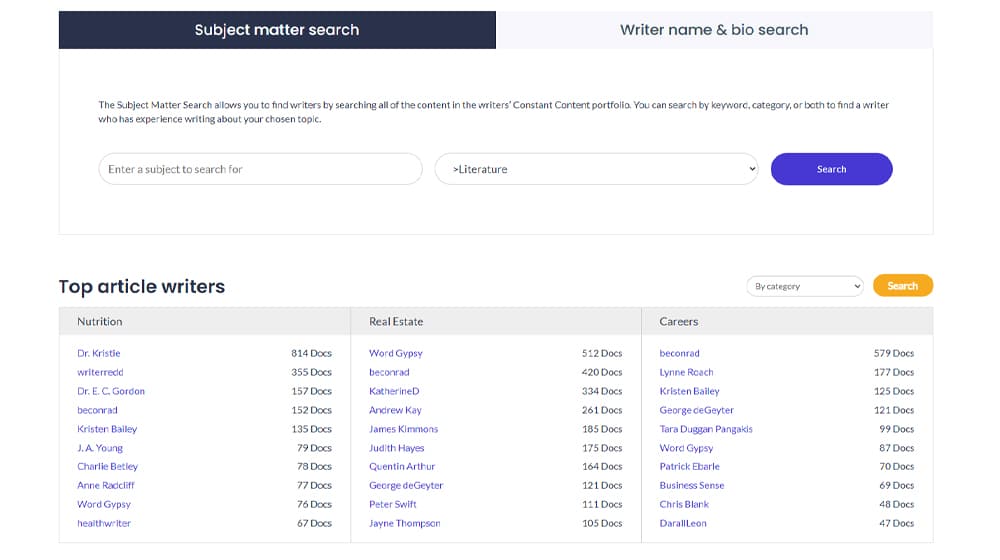
The benefit of using a content mill is that it's fast and cheap. On the other hand, you don't always know who is going to take your project or what quality of work they'll turn in. You also generally can't build an ongoing relationship with a specific writer, and the content mills will fight tooth and nail to prevent you from finding the writers off-site. The content mill will also take a cut of the price they charge, so keep that in mind as well.
If you want to hire a freelancer directly, you can find them on freelancer hubs. These sites, places like Freelancer and Upwork, allow you to browse profiles for writers and reach out to pitch a project. You can then negotiate with the blog writer and, hopefully, find one you can work with for your needs.
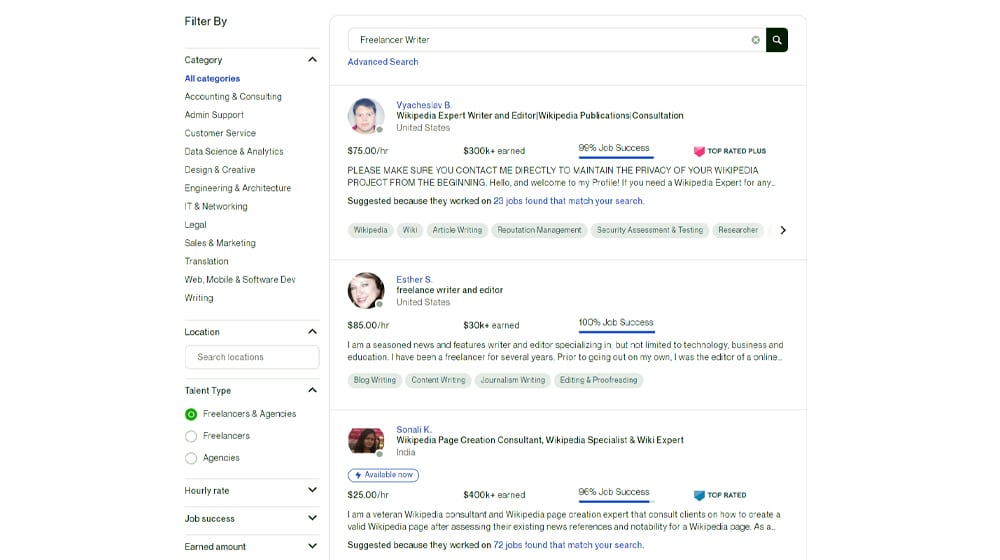
The downside to these sites is often that they are somewhat pay-to-play, and you may need to pay to contact freelancers or pay to have an account in the first place.
Job boards can be both traditional (like Indeed), writer-focused (like ours), or niche/industry-focused (like FlexJobs), and you can find writers on all of them. These are generally best for hiring writers as employees, though you can also post freelance work on some of them.
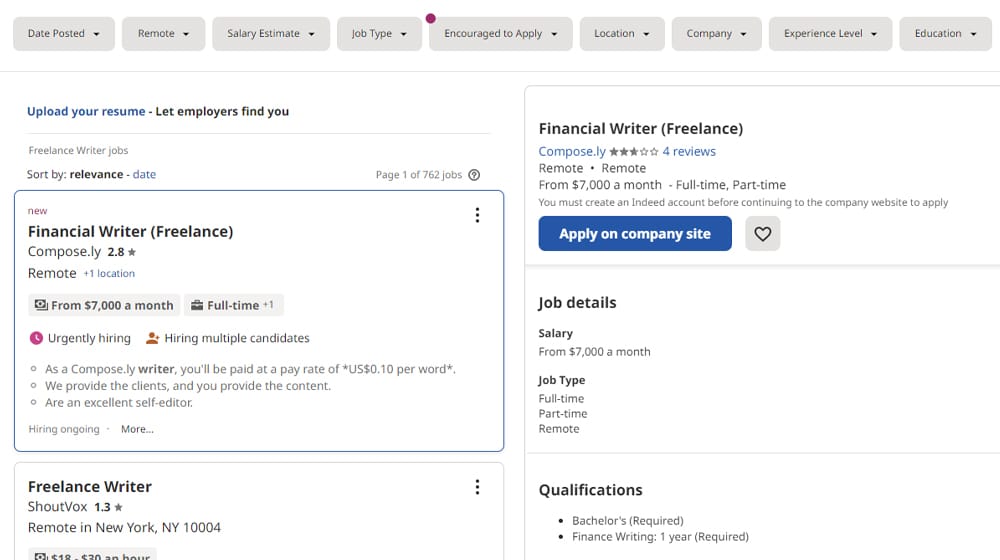
The biggest downside is if you're using a generic job board, you're less likely to find good writers. It's much better to use a focused job board like ours.
A final option is to skip all of the hassle of hiring writers and hire a content marketing agency to handle it all for you. This is usually full-service, meaning you just have to answer questions about your business and your outlook, and the agency does everything to run and promote your blog.

The downside, of course, is a loss of direct control and a much higher expense than working with and managing writers yourself.
One final option is to simply buy content rather than hire writers. There are several content marketplaces, like Constant Content, where you can purchase content that has already been written. This is best if you need a lot of content very quickly, don't care about consistency in tone and voice, and don't mind varying quality levels.

It will be much harder if you have exacting standards or if your industry is uncommon enough that few or no writers have prewritten content about it.
Once you know what kind of writing you need and what kind of writers you want to hire, you'll want to gather candidates and test them.
While writing can involve a standard interview process, it often isn't as important as it is for a typical employee. With writers, especially freelance writers, the proof is in the pudding. That is, you want to have them write actual projects for you to see how they do, how well they can handle tough topics, how well they handle feedback, and how easy they are to work with.
I have two in-depth guides to help you with this process.
The first is 15 Skills and Qualities to Look for in a Talented Content Writer. This post serves as a generic checklist of items you will want to look for when you're considering a candidate writer, whether they're going to be an employee or a freelancer blog writer. Some of it is basic, while other aspects are complex, advanced tips that you might not otherwise think to look for.

The second is How to Give New Freelance Writers a Writing Test. As I said, the proof is in the pudding. You want to come up with a real topic that you want to be written with the same sort of information you would give them if they were a contracted freelancer or employee. That is keywords, target audience, length, any brief or outline you'd want, and so on. You don't necessarily need to go all-in on every little requirement (you don't need them to work in references to your product right away, for example), but you want to make it as much like the "real thing" as possible.
The biggest tip I have for this is to pay a real rate for your test posts. Even if you get back unusable content, it's a worthwhile expense. There are a few reasons for this.
Once you've tested your writers, you can evaluate the quality of the content you're given. Don't forget to run it through something like Copyscape to make sure there's no plagiarism involved!
Depending on the kind of relationship you want with your writer, you will very likely need a contract. If you're hiring them as an employee, a traditional employment contract works. If you're hiring a famous writer, well-known ghostwriter, or agency, they will likely have a contract they use for most of their clients. If you're hiring anyone else, a freelance contract is a good idea.
If you're not convinced that you need a contract, check out my analysis of the subject. I go through the various reasons why you should have a contract and debunk the common arguments against it. The short version: yes, you should have a contract, and it's not just for your own protection.

Contracts are always open to negotiation, and you can put one together from scratch or use a template for it. The key is to come to an agreement with your writer. If you're hiring more than one writer, you may also want to standardize a contract you can use with all of them.
So, there you have it: a guide on how to hire a blog writer. While much of this is generic advice, it's still applicable. That said, if you have any questions, feel free to let me know. I'm more than happy to help!